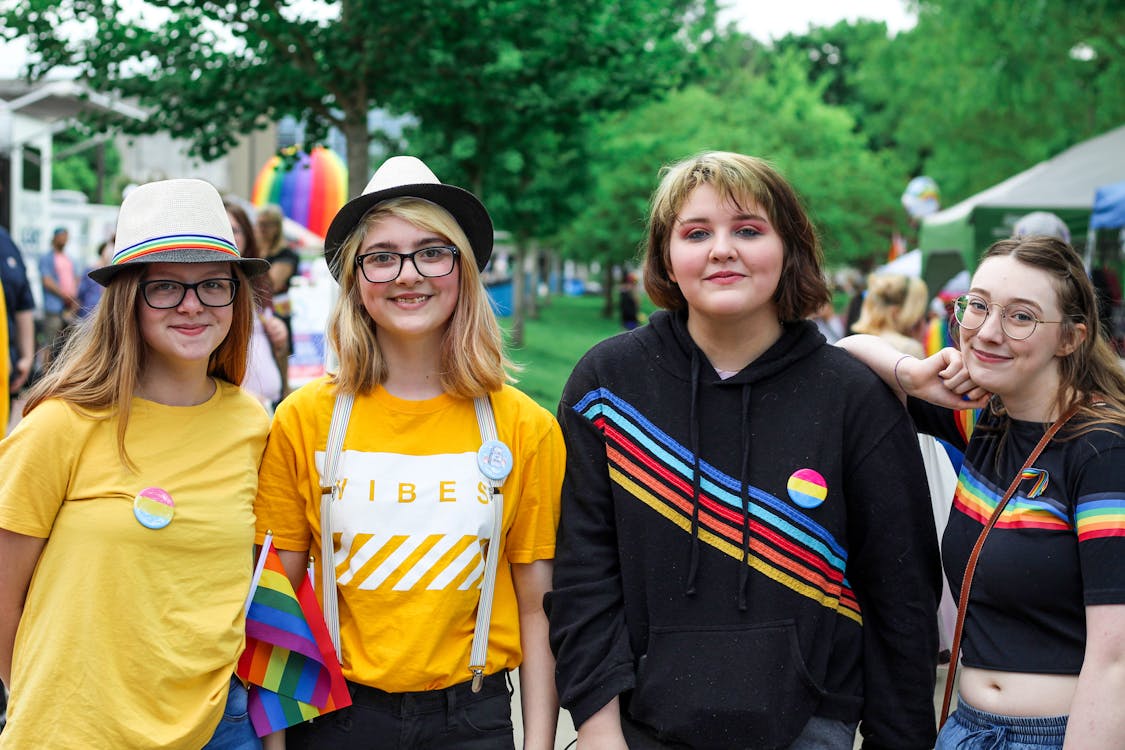Navigating Intersectionality: Supporting LGBTQ+ & Disabled Communities
Last updated March 25, 2024
In a world that increasingly embraces diversity, it's crucial to recognize and understand the unique challenges faced by people who belong to more than one marginalized community. Research shows that members of the LGBTQ+ community face higher rates of mental health concerns– younger members struggling the most. Additionally, research conducted by the HRC Foundation reveals that approximately 36% of individuals within the LGBTQ+ community identify as having a disability. Notably, this percentage increases to 56% among transgender and nonbinary individuals, highlighting the diversity and complexity of challenges faced within these groups.
In this article, we will explore the intersection of LGBTQ+ and disabled identities, the challenges they pose, and how people can receive the support, visibility, and care they need.

Understanding The Complexity of Intersectional Identities
Intersectionality is acknowledging that everyone has their own unique experiences of discrimination and oppression, like pieces of a puzzle that make us who we are. We must consider all factors that can affect how people are treated, such as their gender, race, class, sexual orientation, and physical ability. For example, beyond sexual orientation and gender identity, many LGBTQ+ individuals navigate additional layers of identity. The interplay of these identities shapes a person's lived experience, how they move through the world, and what supports might be available to them. When we focus on all of these identities and how they intersect, it helps us see and understand someone for who they truly are.
Political Context
In 2023, the Human Rights Campaign noted that over 520 anti-LGBTQ+ state legislative bills were introduced, a record number in the U.S. Of those bills, 220 specifically targeted transgender and nonbinary people. Many of these bills aimed to ban gender-affirming care for trans youth, censor school curriculum and books, and expand rights to discriminate. While political discrimination of the LGBTQ+ community is nothing new, it has potential to cause significant social, academic, and physical harm to individuals. In some cases, these policies are even a matter of life and death.
Importance of Visibility and Representation
Many LGBTQ+ individuals worry about being rejected or discriminated against, which can worsen feelings of loneliness. This is why visibility and representation play pivotal roles in creating supportive environments for LGBTQ+ people. When people see positive examples of LGBTQ+ folks, it helps break down harmful stereotypes and provides a sense of belonging. The ability to show up safely as our authentic selves helps with overall mental well-being.
Finding Mental Health Care, Support, and Resources
While LGBTQ+ individuals use mental health services at higher rates than heterosexual people, there is still a higher risk of experiencing shame, fear, guilt, and suicidality. Statistically, bisexual and transgender individuals within the LGBTQ+ community experience the highest rates of mental health concerns. Being aware of how the LGBTQ+ community is being impacted mentally increases the likelihood of someone stepping up to support.
Accessing mental health care can be a challenging journey for LGBTQ+ individuals. Depending on your area, insurance status, or schedule, you might find it difficult to find a regular therapist or counselor. Stay open to being flexible with the type of support and care you receive. Try searching for mental health professionals that specifically serve LGBTQ+ individuals, and check out local LGBTQ+ community healing groups and events. Organizations like The Trevor Project and the National Queer and Trans Therapists of Color Network offer invaluable support. It’s important to seek help and find or create safe spaces. To find additional mental health resources for LGBTQ+ young people, click here.
Becoming an Ally for the LGBTQ+ and Disabled Communities
It’s important to recognize that addressing mental health concerns within the LGBTQ+ and disabled communities requires collective effort. As allies, we must foster inclusive environments that embrace diversity in all its forms. Advocacy for policy changes, nondiscrimination protections, and increased awareness are essential steps toward creating a society that uplifts and supports the mental well-being of every individual, regardless of their sexual orientation, gender identity, or disability.
Understanding the unique challenges individuals face and sharing that knowledge with family and friends can foster more compassion and inclusion. As you advocate for mental health support, remember to rest and recover and check out our collection of articles about self-care for college students.